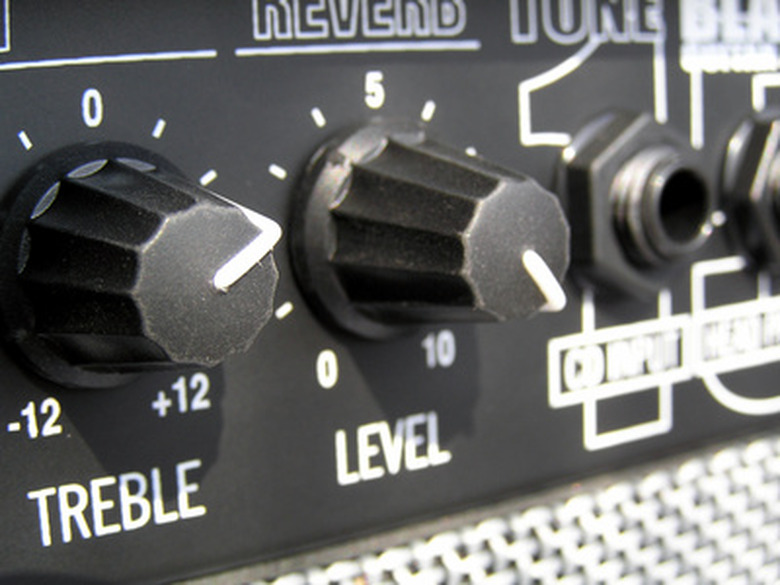The Disadvantages Of A Potentiometer
Potentiometers, or pots, are adjustable resistors having a contact that moves across a resistive element. Some have a rotary action, and others are linear. This motion involves friction between internal parts, and leads to wear and noise. While designers use pots as inexpensive, easy-to-use electronic controls, wear and inertia limit their usefulness as sensors in mechanical systems. Over decades, potentiometer materials have improved, but these fundamental problems still exist.
Wear
Wear
Most potentiometers last only a few thousand rotations before the materials wear out. Although this may sound like a lot, and may mean years of service in some applications, it takes special designs to stand up to daily, demanding use. And it means they can't be used for machine sensing where rapid cycling would wear them out in a matter of minutes.
Noise
Noise
The action of the wiper moving across the element creates a noise called "fader scratch." In new pots, this noise is inaudible, but it can get worse with age. Dust and wear increase the bumpiness of the action and make the noise noticeable. Small cracks can appear in the element, and these make noise as the wiper moves over them.
In addition to these mechanically caused noises, carbon elements, in particular, are prone to producing electrical noise. This noise is heard as a soft, steady hiss that can degrade sound recordings. The resistive materials have improved over the years, so newer pots are quieter than their ancestors.
Inertia
Inertia
The friction between the potentiometer's wiper and resistive element creates a drag or inertia that the pot must overcome before it turns. Although this drag is not large, it prevents the pot from being used as a rotary sensor in more sensitive applications.
Limited Power
Limited Power
Out of necessity, most potentiometers can dissipate only a few watts of power at most. To handle more power, they would have to be larger and more expensive. Engineers work around this problem by putting the potentiometer in low-power parts of circuits. They control small currents, which, in turn, control transistors and other components with greater power ratings.
Cite This Article
MLA
Papiewski, John. "The Disadvantages Of A Potentiometer" sciencing.com, https://www.sciencing.com/disadvantages-potentiometer-6144904/. 24 April 2017.
APA
Papiewski, John. (2017, April 24). The Disadvantages Of A Potentiometer. sciencing.com. Retrieved from https://www.sciencing.com/disadvantages-potentiometer-6144904/
Chicago
Papiewski, John. The Disadvantages Of A Potentiometer last modified March 24, 2022. https://www.sciencing.com/disadvantages-potentiometer-6144904/
